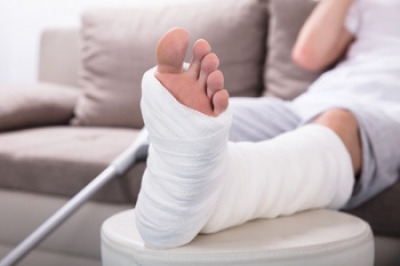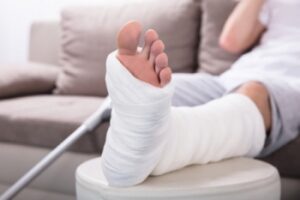7 Simple Habits That Can Save Your Bones From Painful Fractures

7 Simple Habits That Can Save Your Bones From Painful Fractures
Keeping your bones strong is one of the best ways to avoid painful fractures. Bones are living parts of the body and need proper care at every age. The good news is that a few simple habits can keep them healthy and less likely to break. It all begins with what you eat and how you treat your body every day.
Eat enough calcium-rich foods
Calcium is the main building block of your bones. Without enough of it, bones can become weak and break more easily. Adults need about 1000 mg of calcium a day. A single cup of low-fat milk gives you about a quarter of this amount. You can also get calcium from foods like tofu, yogurt, almond milk, canned sardines or salmon, and whole almonds. Eating a mix of these foods regularly will help keep your bones firm and strong.
Get enough vitamin D to absorb calcium
Calcium alone is not enough. Your body needs vitamin D to absorb the calcium you eat and send it to your bones. Adults over 50 should aim for 800 to 1000 IU of vitamin D each day. You can get it from vitamin-D-fortified foods such as milk and breakfast cereals. Spending a few minutes outside in sunlight also helps your body make vitamin D naturally. This works best when you remember to use sunscreen to protect your skin.
Lift weights and stay active
Bones get stronger when you use them. Just like muscles, they respond to regular exercise. Activities like lifting light weights or using resistance bands help your bones fight against gravity and grow stronger. If you have had fractures earlier or feel unsteady, choose low-impact activities like climbing stairs or walking on gentle slopes. Being active also builds muscle and improves balance, lowering your chances of falling.
Make your home and surroundings safe
Preventing falls is one of the easiest ways to avoid fractures. Start by making your home safer. Use nightlights so you can see clearly at night. Keep floors clear of clutter and remove loose electrical cords. Avoid walking in socks or loose slippers, and use a rubber mat in the bathroom to prevent slipping. Outside, wear shoes with good grip, watch for wet or uneven surfaces, and check for curbs before stepping onto roads or pavements.
Quit smoking to protect your bones
Smoking is bad for your bones as well as your lungs. The chemicals in tobacco slow down bone building and reduce the amount of calcium your body can use. Smoking also lowers important hormones that help maintain bone strength. Quitting smoking is one of the most powerful steps you can take to keep your bones healthy and prevent fractures in the future.
Drink less alcohol
Too much alcohol makes it harder for your body to rebuild bone tissue. Over time this can lead to weaker bones and a higher risk of fractures. Try to keep your drinks to a very small number each week or avoid alcohol completely. Fewer drinks will also help your heart and overall health.
Strong bones are built over time. The earlier you start, the stronger your skeleton will remain as you grow older. Eating well, staying active, and avoiding smoking and excess alcohol will protect your bones for years to come.
Disclaimer: This article is for general information only. For personal health concerns, please consult a qualified medical professional.












